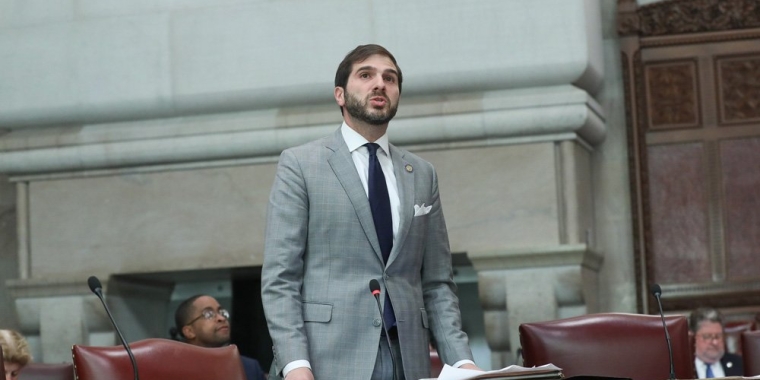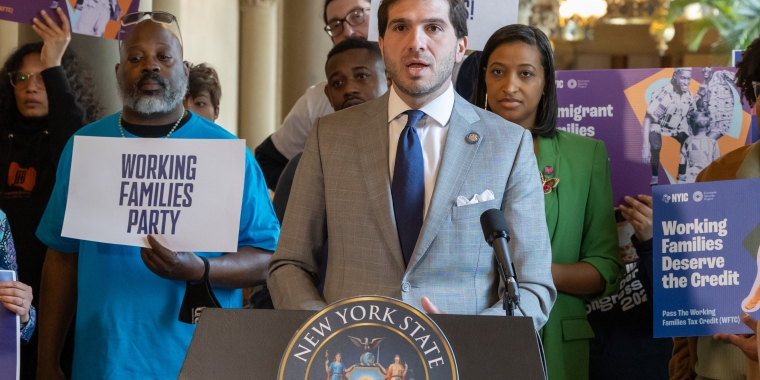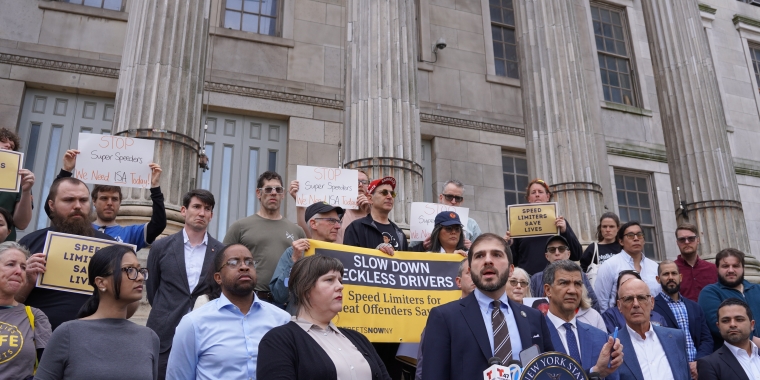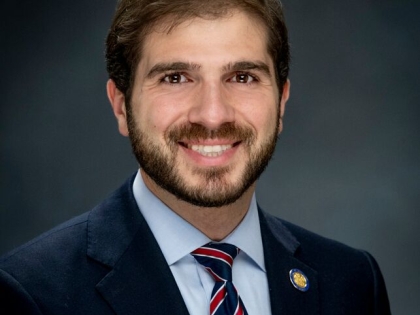
Gounardes wants to make it easier to lock up reckless drivers
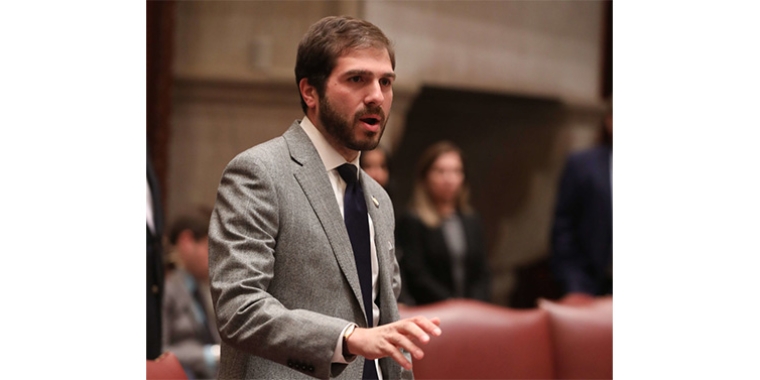
Law change: State Sen. Andrew Gounardes plans to work with safe street advocates to craft new legislation that would make it easier to prosecute reckless drivers who cause fatal collisions after a Midwood crash that killed cyclist Jose Alzorriz Sunday.
A Brooklyn state senator wants to make it easier to put reckless drivers behind bars after police released the teenage motorist who they say killed a cyclist after blowing through a red light in Midwood Sunday.
“I’m concerned about cases like this that have extreme reckless behavior where the law clearly has a gap in coverage,” said State Sen. Andrew Gounardes (D–Midwood).
The state legislator vowed to work with safe-street advocates and legal experts to craft new, tougher laws against drivers involved in fatal motor-vehicle collisions, such as the 18-year-old motorist who ran a red light on Coney Island Avenue at Avenue L on Aug. 11, T-boning an SUV, which then slammed into Park Slope cyclist Jose Alzorriz, killing him.
Officers took the teen driver into custody at the scene, only to cut him loose without pressing charges or issuing any citations, demonstrating what Gounardes described as an arbitrary legal distinction between killing people with a car versus virtually any other means.
“If he was walking down the avenue and throwing knives across the street and he hit someone and killed someone he’d be charged with manslaughter or homicide — how is this any different?” Gounardes asked.
Experts claim that current laws are vague when describing the burden of proof for reckless manslaughter and criminally negligent homicide — the two felony charges most commonly associated with fatal motor-vehicle collisions — which make getting those charges to stick a crapshoot.
And for every trial that ends in acquittal, the job of securing a conviction becomes harder and harder, according to one transit advocate.
“[District attorneys] will say that case precedent makes it very difficult to bring manslaughter charges and reckless driving criminal charges because of precedent that requires them to prove that a driver’s behavior grossly deviated from what a normal person would do,” said Marco Conner, deputy director at Transportation Alternatives, an advocacy group promoting safe streets.
To prove that a driver acted recklessly in a fatal collision, judges commonly require prosecutors provide evidence of two moving violations — such as speeding, running a red, failure to yield, etc. This unofficial mandate is known informally as “the rule of two,” but the axiom is not found in any legal code, and rulings remain unpredictable and subjective as a result, according to Conner.
“Part of the reason judges came up with that rule of two is so that there was too much subjectivity in the statutes — what does ‘gross deviation’ mean,” he said.
Gounardes said that one possible solution could be to codify that unofficial rule to help provide prosecutors with clear guidelines when it comes to securing reckless manslaughter convictions.
He will also consider expanding the definition of vehicular manslaughter, a felony charge that typically requires prosecutors prove that a driver was intoxicated at the time of a crash.
District Attorney Eric Gonzalez and his predecessor Ken Thompson have previously brought second-degree manslaughter charges against car-borne killers, such as Dorothy Bruns — the Staten Island motorist who struck and killed two children in 2018 — and Marlon Sewell, who killed 30-year-old Victoria Nicodemus amid a collision in Fort Greene in 2015.
But those cases relied on external factors beyond moving violations — Bruns’ doctor had told her not to drive for health reasons and prosecutors claimed that Sewell knowingly drove a hunk of junk, which spewed noxious fumes into the cab that made him light-headed during the crash, DNAInfo reported.
And neither case ended in conviction. Bruns committed suicide ahead of her trial, while Sewell’s case ended in a mistrial after a juror was overheard stating “I’m not sending a black man to jail,” and prosecutors have not been able to retry the case due to scheduling difficulties caused by Sewell’s attorney, according to a spokesman for Gonzalez.
But just because Gonzalez did not immediately seek an indictment doesn’t mean he’s prohibited from doing so following the conclusion of a thorough investigation, and a spokesman for the district attorney said his boss will not rush into court unprepared to accommodate the whims of social media pundits.
“Those who understand criminal justice know that prosecutors should not bring charges at the speed of Twitter and viral posts, but should rather bring them after thorough and complete investigations when the evidence and the law allow,” said Oren Yaniv.
